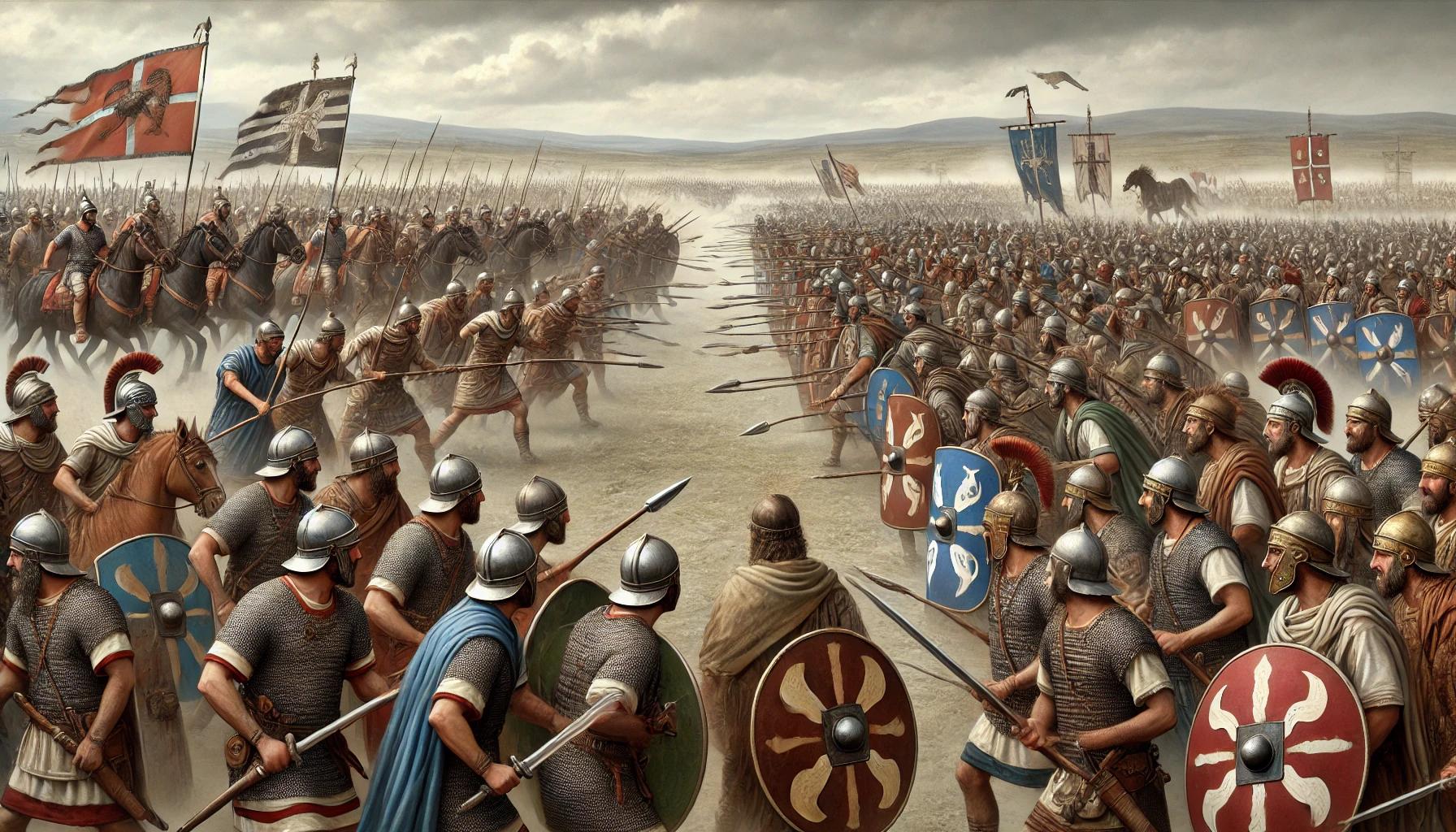The Battle of the Catalaunian Fields
The end of Attila's advance

In 451 A.D., the Battle of the Catalaunian Fields represented the last great triumph of the Western Roman Empire. Flavius Aetius, with an unlikely alliance of Romans and Visigoths, halted the advance of Attila, the ‘scourge of God’, proving that even a declining empire could still stand strong against its enemies.’ - Image generated with AI
In 451 A.D., the Western Roman Empire, by then in steep decline and close to collapse, was the scene of one of the most famous battles of late Roman antiquity: the last great victory of the Roman army over the barbarians, the Battle of the Catalaunian Fields. On one side were the troops of the famous Roman general Flavius Aetius, protector and hero of Rome, and on the other the forces of the Huns led by the fearsome Attila, also known as the 'Scourge of God'.
General Aetius managed to form an alliance, albeit a fragile and unlikely one, with a vast agglomeration of barbarian peoples and tribes that had long since moved into Roman territory. These tribes, just like Rome, considered Attila an enemy to be defeated, so the Visigoths, led by King Theodoric I, allied themselves with the Romans of Aetius and other local Gallic tribes.
The battle, bloody and chaotic, took place in today's French region of Chalons en Champagne and saw very heavy losses on both sides. The Visigoths of Theodoric played a key role in the clash and, through a heavy counter-attack in which King Theodoric I himself died, forced the Huns to retreat to their camp, marking the outcome of the battle.
Attila was faced with a well-organised and coordinated army and, although the battle did not mark a devastating defeat for the Huns, it was nevertheless the definitive end of the Hunnic advance in Europe, blocking Attila's expansionist dreams forever.
The Battle of the Catalaunian Fields remains a symbol of the great military successes of the Roman Empire and the demonstration that even a decadent and weakened empire can still be able to prevail militarily and deliver powerful blows to its enemies.
This battle is also a symbol of resilience and how a coalition of peoples, albeit with internal rivalries, can unite and succeed against a common enemy threatening their independence. The merit of Aetius was to grasp the fundamental strength of the coalition to protect Rome once again.
Peter J. Heather, The Fall Of The Roman Empire: A New History Of Rome And The Barbarians, Oxford University Press, 2005
2025-05-24
Luca Ravasi
